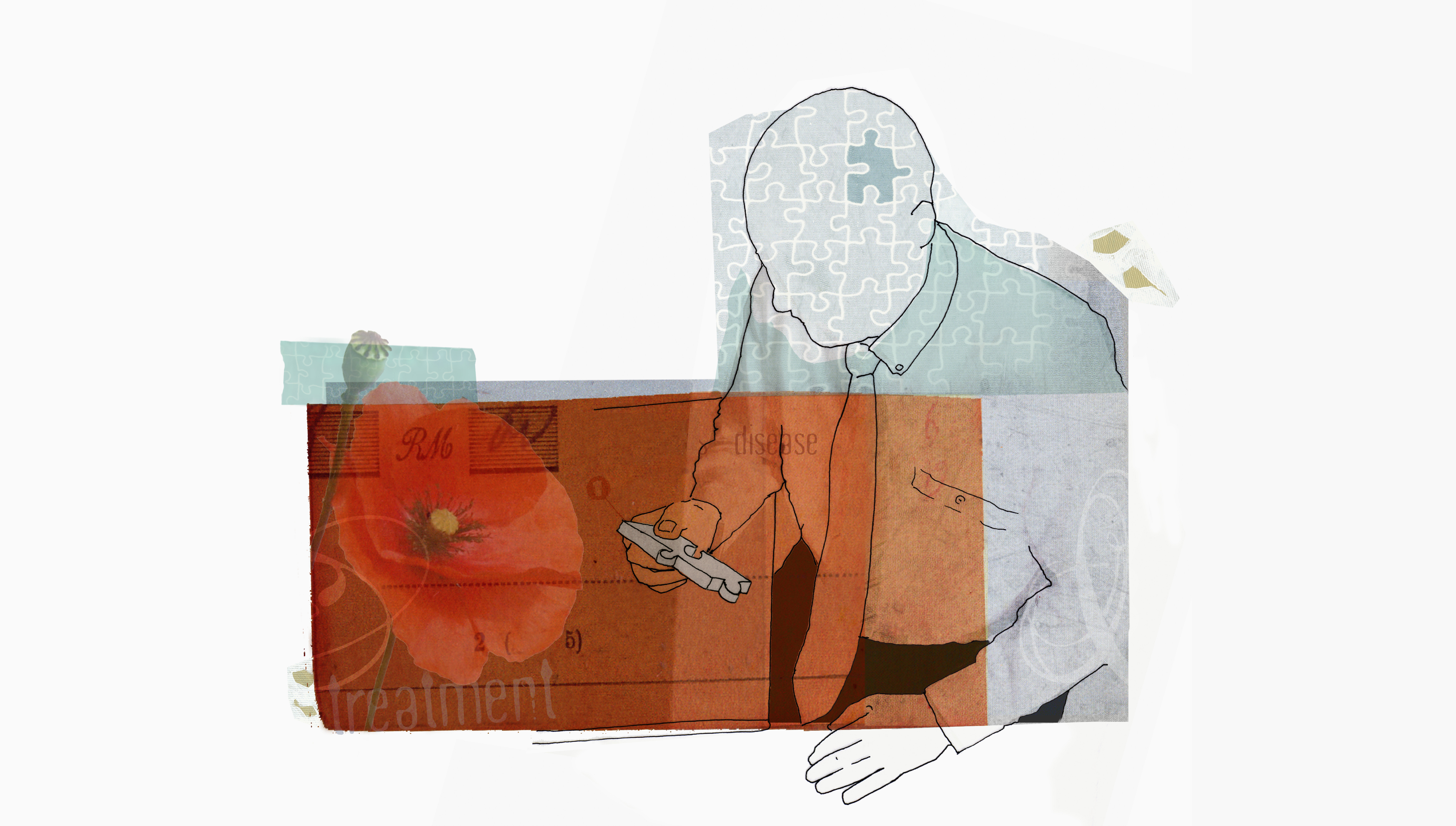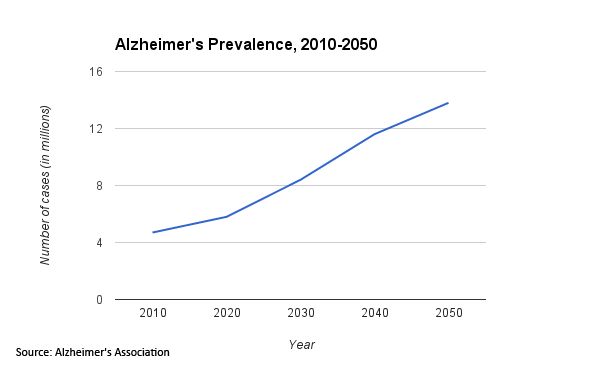America's future dementia epidemic
Part of our series on America in 2050...

A free daily email with the biggest news stories of the day – and the best features from TheWeek.com
You are now subscribed
Your newsletter sign-up was successful
2014 was a big year for medicine. An unprecedented Ebola outbreak in West Africa, the release of a report showing an increase in antibiotic resistant diseases worldwide, and a spike in American measles cases from parents opting out of vaccines all made headlines.
Yet researchers studying a quieter but no less deadly disease also had something to say. A team at the Rush Institute for Healthy Aging released findings that showed that cases of Alzheimer's disease, the neurological condition that gradually robs the sufferer of their mental abilities, would increase considerably as the American population aged.
The report, which was put together using calculations that took data from a Chicago sample and extrapolated it nationwide using census data, showed that an estimated 1.6 million Americans age 65 or older would die of Alzheimer's by 2050. That would account for 43 percent of older adult deaths in the country. By contrast, 32 percent of older adults deaths were due to the disease in 2010.
The Week
Escape your echo chamber. Get the facts behind the news, plus analysis from multiple perspectives.

Sign up for The Week's Free Newsletters
From our morning news briefing to a weekly Good News Newsletter, get the best of The Week delivered directly to your inbox.
From our morning news briefing to a weekly Good News Newsletter, get the best of The Week delivered directly to your inbox.
It's not that Alzheimer's is somehow becoming more virulent. In fact, some studies indicate that Americans are at less risk of developing the disease today because the rates of heart disease and stroke nationwide are going down. Scientists believe there is a link between cardiovascular health and forms of dementia like Alzheimer's.
Instead, it's demographics that are leading the shift. As the Baby Boomer generation ages, the country will experience what some demographers call "the silver tsunami," as aging Americans fuel a higher demand for services and health care. With that shift also comes an increase in age-related disease, like Alzheimer's and other forms of dementia. So while the risk of Alzheimer's might actually be on the decline, the sheer number of older Americans is expected to make the disease a leading cause of death nationwide for decades.
By 2030, 20 percent of the American population will be 65 or older, according to an Alzheimer's Association report. Barring any unforeseen changes in the disease or a cure, that means roughly 13 million older Americans could suffer from Alzheimer's disease by 2050, the association says.

"Age is by far the strongest risk factor for Alzheimer's," said Jennifer Weuve, who led the Rush Institute study. "It will be interesting to see how the aging experience of the Baby Boomer generation will possibly change how we think about Alzheimer's, the way we treat it and the way we manage it."
A free daily email with the biggest news stories of the day – and the best features from TheWeek.com
Researchers are trying hard to stem the tide of dementia in a rapidly aging population. In 2011, President Obama signed an act establishing the National Alzheimer's Project to coordinate federal research into the disease across agencies, with the ultimate goal of an effective treatment by 2025.
With this new attention came renewed funding and global interest, with the G7 group of nations holding a "dementia summit" earlier this year. And cooperation has become central to the push to halt the disease. Federal agencies, universities, hospitals, and drug companies now partner together under an umbrella system organized by the National Institutes of Health to share information and test results, and researchers also share brain scans and other data worldwide.
But Weuve, the Rush Institute study leader, says that even with the hard work being put into research and testing, a workable treatment may still take some time, and that raises tough questions as Americans age.
"We need to face the possibility that there will be a lot of people who develop this condition before we have a cure," she said. "How do we humanely and sanely manage the symptoms of the condition? What is death going to be like? Will we be proud of how we treat Alzheimer's patients?"
Matt Hansen has written and edited for a series of online magazines, newspapers, and major marketing campaigns. He is currently active in press freedom and safety research with Global Journalist Security.